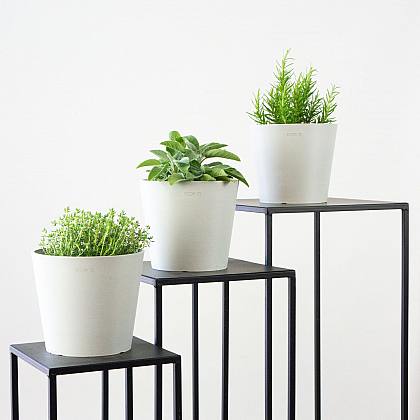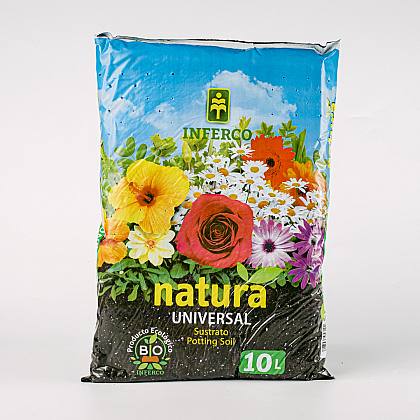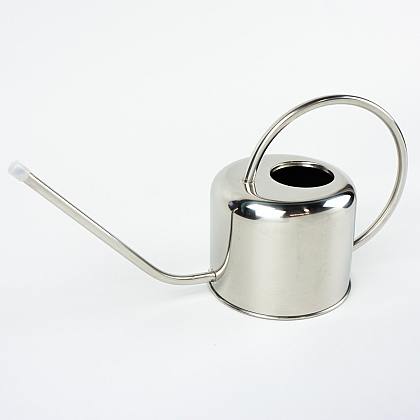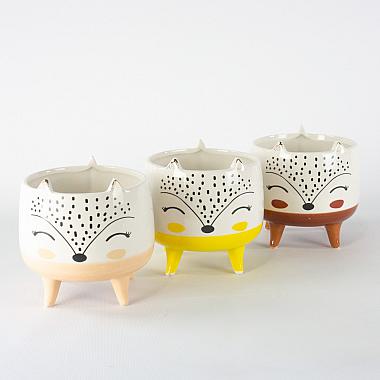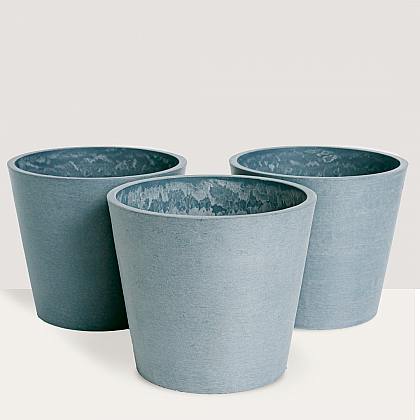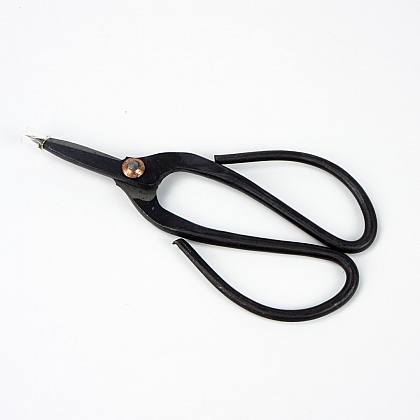Aromatic plants
In ancient times, all gardens displayed a respectable selection of aromatic and edible plants alongside ornamental ones. In temples it was essential to grow the plants used in rituals, while those involved in medicine required plants for remedies and cooking.

In ancient times, all gardens exhibited a respectable selection of aromatic and edible plants alongside ornamental ones. In the temples it was essential to cultivate the plants that were used in the rituals, while those who dedicated themselves to medicine required to have the plants and herbs necessary for the remedies and in the kitchen herbs were required to give flavor to the food.
Although nowadays it is no longer essential to have these plants, there is a delicate pleasure in taking a couple of leaves to make an infusion or to season your meals. The best part? It's not complicated at all to grow your own garden of aromatic plants.
The easiest aromatic plants to care for
Peppermint: Peppermint
has digestive properties, it's magical for relieving gas, nausea and stomach upset. It is very refreshing and has a high iron content, so it can be taken to combat anemia. It is also used to decongest the airways in colds.
This plant is biennial, growing low, spreading wide. It can be very invasive, so it is recommended that it be in a pot alone. It grows in any type of substrate, requires lots of light and periodic watering.
Thyme:
It has anti-inflammatory, digestive properties and has hundreds of uses in cooking. It is almost impossible to make Mediterranean recipes without their presence.
This plant is stationary, but if you are aware of removing the flowers and seeds as soon as they come out, you can extend its life span. It tolerates light and shade, but does not resist very low temperatures. It requires regular watering, because at the slightest sign of drought it will look sagging.
Oregano:
Another essential plant in Mediterranean cuisine. It is ideal for combating menstrual cramps and works as a relaxant. You can use it fresh or dried to dress pasta sauces, pizzas, poultry, and meats. It is small and grows very easily. If you plant it in the ground, it will grow into a large shrub that can measure up to 2 meters.
It is very resistant, prefers very bright spaces and is not too demanding with watering.
Chamomile:
Chamomile is an herbaceous plant that produces beautiful white flowers. The infusion serves as an anti-inflammatory, relaxing, relieves digestive problems and gas, as well as being of great help in cases of asthma and flu. This plant grows in full sun and prefers sandy, drained soils.
It resists droughts very well and reaches its splendor during the spring.
Rosemary:
The star of the kitchen. You can use it to dress stews, roasts, sauces, poultry, meats, and pork. You can mix it with butter or cream cheese to create a delicious dip or to flavor potatoes and chicken. Rosemary is very hardy, has a woody trunk and can grow as a one-meter shrub, very abundant if planted in the ground. In pots it can also grow in a leafy way.
It prefers direct lighting and moderate watering.
Parsley:
This aromatic herb is rich in minerals such as iodine, calcium, iron, and magnesium. You can use it in vinaigrettes, salads, as a dressing, and even as a garnish in almost any dish. It also has medicinal properties, as it is perfect for fighting gastric or intestinal inflammation. It grows very easily, even from seed. It withstands almost any climate, although it prefers sunnier seasons.
You can grow it in any pot and it's not picky about the substrate at all.
Lavender:
It has antiseptic properties, but is most commonly used for its delicious aroma. Within aromatherapy it is highly appreciated for its relaxing and calming effects. They say that having it close to your bed produces pleasant and pleasant dreams. Lavender infusions, in addition to being fragrant, are ideal for nervous states.
It resists droughts well and should be pruned to keep it leafy.
Tips for Growing a Garden of Aromatic Plants You
- don't require a lot of space to grow aromatic plants, you can have them in separate small pots or group them according to their type.
- Separate annuals from perennials, as they have different care depending on their life cycle. Perennials have leaves year-round. Within this group are rosemary, lavender, thyme, sage, and mint. Annuals last only one season, complete their cycle and die, like basil, dill and chives. As for watering,
- all aromatic plants require periodic watering, but some are more demanding than others. Basil, parsley, cilantro, and mint require a lot of care with water, while rosemary, lavender, thyme, and sage stand up to droughts a little better.
- When you harvest the leaves or flowers for cooking or making infusions, it stimulates the growth of the plants and prevents them from entering the cycle of maturity-flowering-death. Do small pruning, never more than 1/3 of the plant at a time.
- Remove the flowers from your plant, as this will keep it constantly growing, with fresh and large leaves.
- Reproduce your aromatics with cuttings or seeds, it's very simple and will keep you with new specimens for your garden and kitchen.

